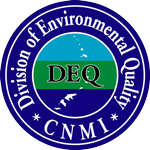
Hafa Adai and Tirow! Welcome to the Division of Environmental Quality - Bureau of Environmental and Coastal Quality website.
Safe Drinking Water Branch


DEQ’s Safe Drinking Water and Ground Water Management Programs protects public health and the environment by monitoring the activities of all public water systems in the CNMI and regulating access to and withdrawal of the ground water from the vulnerable fresh water aquifers of our islands.
The Safe Drinking Water program is responsible for regulating public water systems through the training, testing and certification of water treatment plant operators, inspecting public water systems on a periodic basis, reviewing designs of new or modified public water systems, tracking the water monitoring and compliance activities of public water systems and investigating drinking water violations and responding to drinking water complaints.
The Groundwater Management program is responsible to protect overuse or contamination of fresh water aquifers by allowing only qualified, bonded and licensed personnel perform drilling activities, permitting the construction of new wells in locations that have the least risk of aquifer contamination, and monitoring the water quality of quantity pumped from exiting wells.
Public Water Systems
DEQ regulates public water systems to ensure that the water they provide is safe to use and will not spread disease or cause illness.
What is a "public water system"?
A public water system collects, treats, or distributes water for “human consumption” (which includes drinking, bathing or showering, hand washing, food preparation, cooking, dish washing, or oral hygiene); and has at least 15 service connections or serves at least 25 people daily at least 60 days a year. Examples of some public water systems in the CNMI include:
- Commonwealth Utilities Corporation (CUC)
- Bottled Water Companies
- Hotels or restaurants that treat water
- Garment factory barracks that use rain water
- Schools with their own wells
Examples of water systems not regulated as public water systems by DEQ include:
- Individual wells that serve a single home
- Rain tanks that serve a single home
- Reverse osmosis (R/O) or ultraviolet (UV) units that serve a single home
- Wells used for irrigation
There are 80 active public water systems in CNMI that are regulated by DEQ.
What does DEQ require public water systems to do?
Public water systems must test their water for bacteria every month from a DEQ approved coliform monitoring plan and for other contaminants based on a schedule set by DEQ. These tests are expensive.
Public water systems spend a lot of money to ensure you get safe water. Public water systems must disinfect their water with chlorine or other means to ensure it is not contaminated with bacteria or other pathogens.
Public water systems must be operated by a person that has passed a test and been “certified” as a water operator by DEQ. Community water systems (a sub-set of the public water systems) must produce an annual consumer confidence report detailing the quality or their water. Public water systems must be aware of all the drinking water regulations.
DEQ periodically holds workshops to educate public water systems operators about new or revised regulations. Before a public water system is constructed or modified, DEQ must review and approve the plans to ensure that the new facility utilizes approved fixtures and will provide safe water.
Before a public water system first serves water to the public, DEQ must inspect the facility and grant an approval to operate the water system. DEQ formally conducts sanitary survey inspections of public water systems at least once every three years. Public water systems have 30 days to correct any significant deficiencies that DEQ finds during the inspection.
What happens if a public water system violates the regulations?
Public water systems that violate the CNMI Drinking Water Regulations can be assessed a penalty of up to $25,000 per day per violation. That is a very hefty fine! DEQ would rather not have to fine a water system though. DEQ’s primary goal is to ensure that your water is safe to use. When DEQ first learns that a water system is not in compliance with the regulations, DEQ does everything it can to help the water system get back into compliance so that it is providing safe water. Assessing a penalty is the method of last resort when a public water system is not willing to comply with regulations.
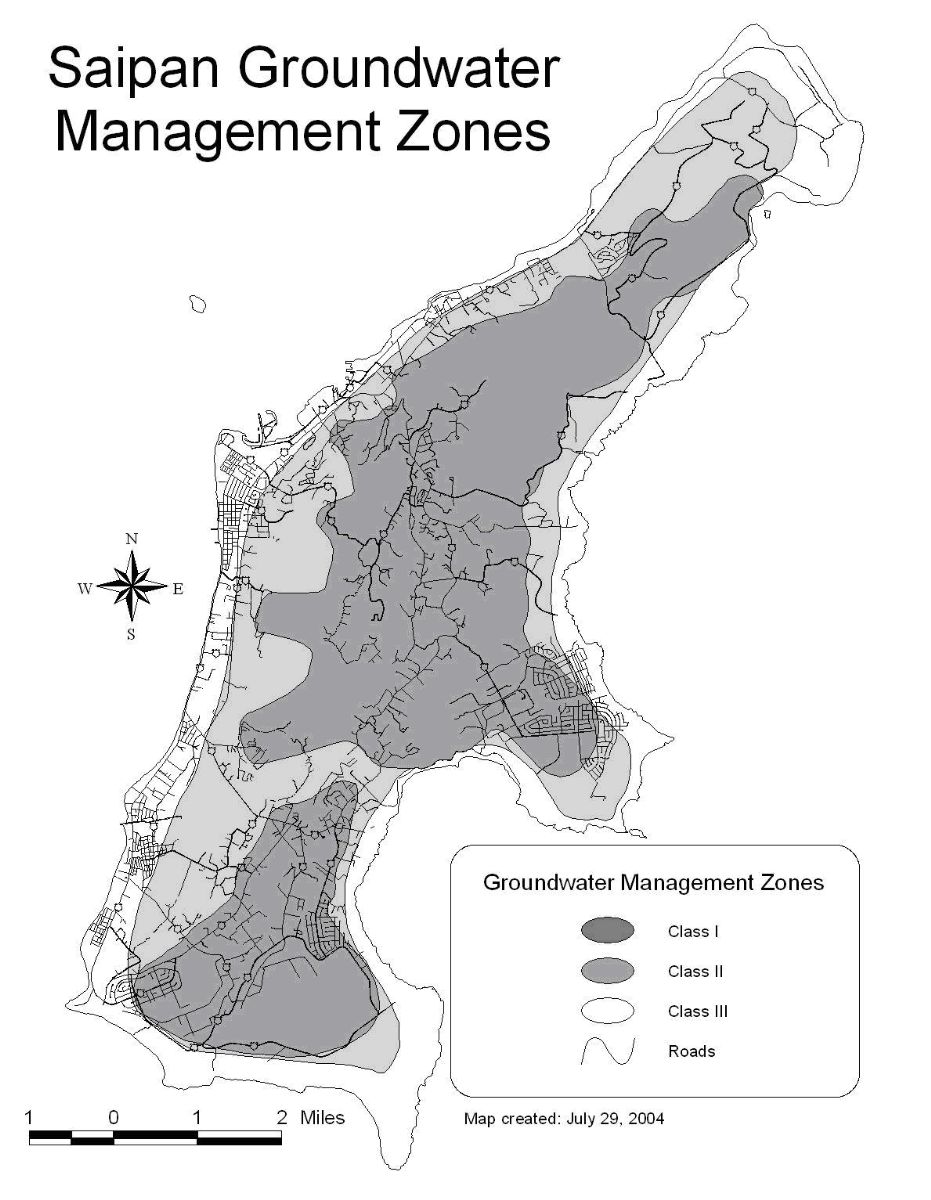
Groundwater Management Zones
Groundwater Management
The Ground Water Management Program monitors and regulates the withdrawal and injection of water into the aquifers of Saipan, Tinian and Rota. The goal of the program is to protect the ground water resource so that it can be put to the highest beneficial use for which it is capable. The program accomplishes this goal by:
- Licensing well drillers in the CNMI to ensure that qualified personnel drill wells.
- Issuing permits for the construction of new wells to ensure that the wells are constructed to acceptable standards.
- Issuing operating permits for existing wells to ensure that the aquifers are not damaged or contaminated due to over pumping or other bad practices.
There are over 600 various types of wells on Saipan, Tinian, and Rota that DEQ regulates. Saipan alone produces over 9,000,000 gallons of water per day.
Under the Commonwealth Groundwater Management and Protection Act of 1988, Public Law 6-12, the Division of Environmental Quality (DEQ) is authorized to (a) permit the siting, design, construction, testing, and repairs or improvements of wells; (b) manage the withdrawal and use of groundwater through well operation permits; and (c) promulgate rules and regulations to implement the Act. All regulations are published in the Commonwealth Register.
As of September 2005, well drilling and well operation regulations have been printed in the following Commonwealth Registers:
- 09/15/1992, Vol. 14, No. 09, Page 09704 (Final)
- 02/15/1994, Vol. 16, No. 02, Page 11705 (Final)
- 10/26/2004. Vol. 26, No. 10, Page 22996 (Proposed)
- 12/17/2004, Vol. 26, No. 12, Page 23759 (Final)
Groundwater Management Zones
Groundwater management zone (“GMZ”) classifications have been designated on the basis of groundwater quality, availability of recharge, susceptibility to degradation, and present and future land use.
Class I GMZs are established as critical groundwater protection areas capable of supplying high quality fresh water, and shall receive the highest level of environmental protection.
Class II GMZs are established as important protection areas considered capable of supplying good quality groundwater, but generally of lower quality (e.g. higher chlorides concentration) than Class I GMZs.
Class III GMZs are areas providing recharge to primarily brackish aquifers, having some intrinsic value as a resource to supply desalination plants, but primarily of lower value than groundwater found in Class I and II GMZs.
Well Drilling
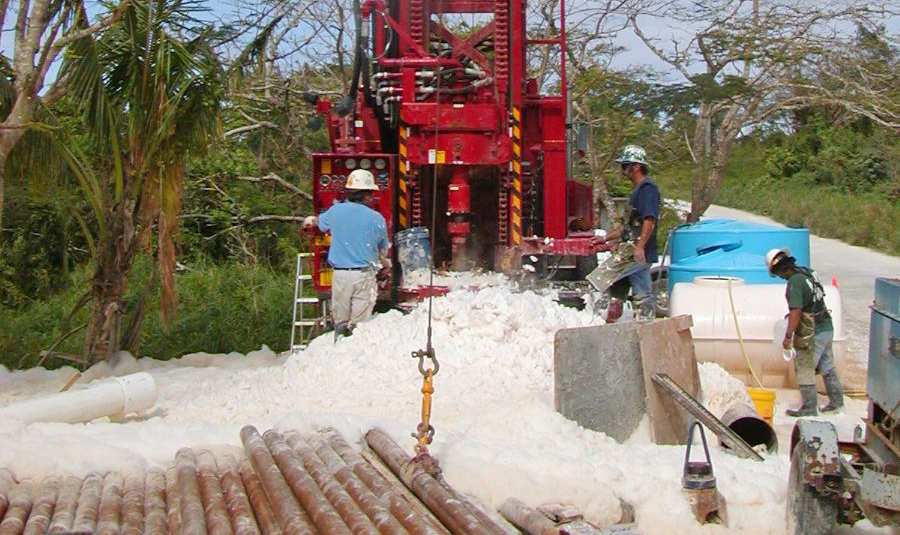
Any person, public or private, who is engaged or intends to engage in the drilling of wells, is required to apply for a Wells Driller’s License. Such licenses are required not only of those who make a regular business of well drilling, but all who may construct wells for their own purposes, for others as an incident to any lien of business activity, or for the exchange or barter of services. A copy of the Well Driller’s License application form is available online or at the DEQ office. For more detailed information, please refer to section 4. of the well drilling and well operation regulations.
Well Operation
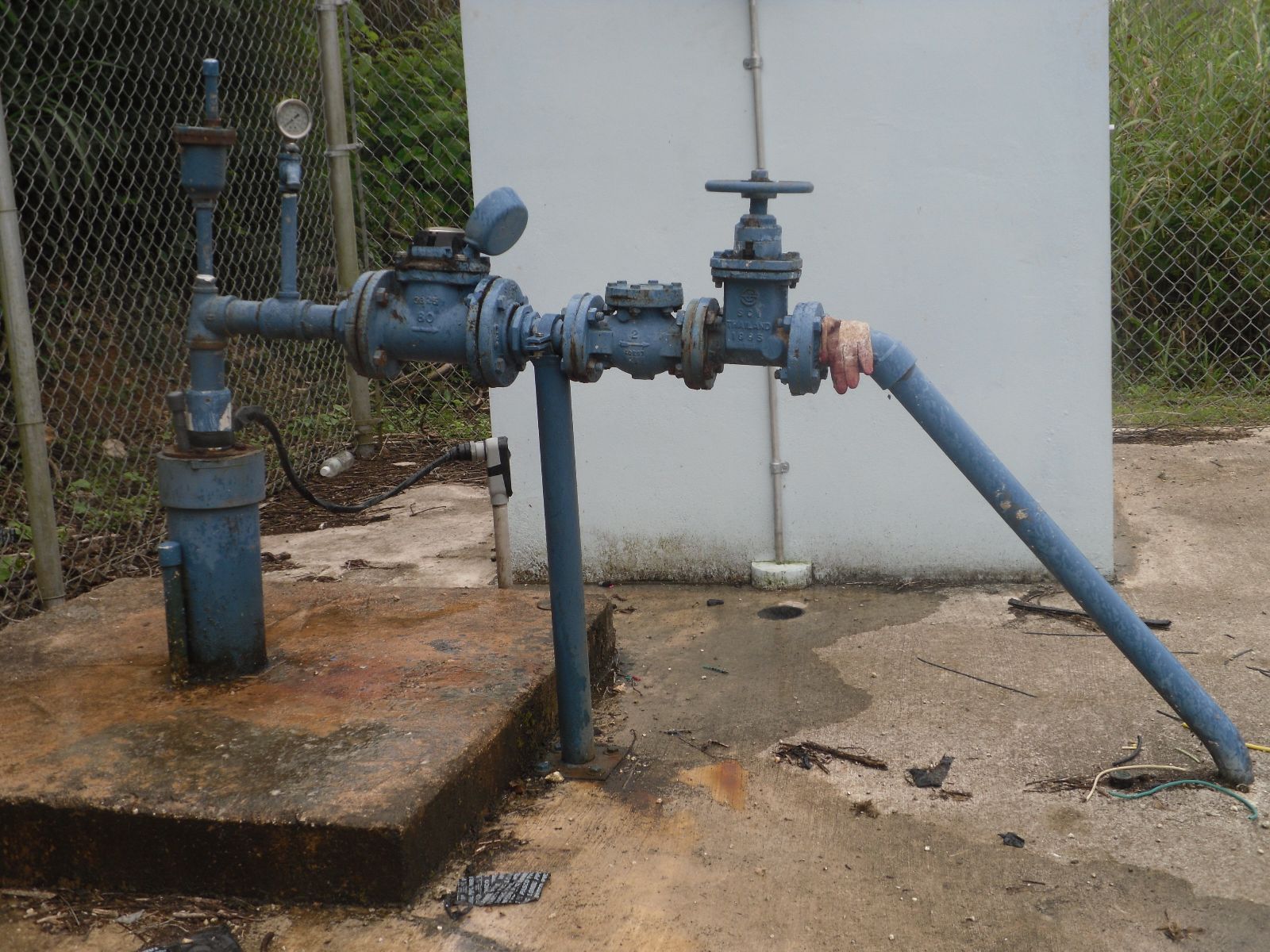
No person may operate a well or withdraw groundwater without a valid well operations permit issued by the Chief. Upon satisfying all of the well drilling permit requirements, and prior to placing any new or significantly modified well into service (including monitoring wells), the applicant must submit a new well operations permit application to the Division.
Water Operators
Owners of all public water systems must place the direct supervision of their water system, including each treatment facility and/or distribution system, under the responsible charge of an operator holding a valid certification equal to or greater than the classification of the treatment facility and/or distribution system. All operating personnel making process control/system integrity decisions about water quality or quantity that affect public health must be certified. A designated certified operator must be available each operating shift.
CERTIFICATION REQUIREMENTS
A person seeking CNMI certification must complete the CNMI Water Operator Certification form and submit it to DEQ. DEQ Will certify an applicant that has met the examination, experience, and education requirements; or that has a certification in good standing from any US State, territory, or possession.
All certificates are valid for three years, (including the year the certificate is issue). For example, if applicant passes the examination or request for renewal on NOVEMBER 02, 2014 then his/her certification will expire on NOVEMBER 02, 2016. OR, if applicant passes the examination or request for renewal on DECEMBER 31, 2013 then DEQ will still count 2014 as one year giving the certificate expiration on DECEMBER 31, 2014.
EXAM REQUIREMENTS
CNMI-DEQ uses an online examination through Association of Boards of Certification (ABC). Water operators and potential water operators need to fill-out an application and submit to DEQ with applicable fee, education background (diploma, degree, transcript), and employment verification.
Application is $15.00 while testing fee is $51.00. [$15.00 + $51.00 = $66.00]
However, if applicant plans to take 2 examinations, i.e. Water Treatment 1 and Water Distribution 1, applicant could only pay for 1 application fee and 2 examination fee. [$15.00 + ($51.00 X 2) = $117.00]
If applicant fails the examination, the applicant may not retake the same examination until 90 days.
Download Forms
For more downloadable documents, just click on the links and you will be able to download and print. If you find that you are not able to open any of the documents, please contact DEQ's Safe Drinking Water Program at 670-664-8500/01.
The following documents are available regarding this topic:
Regulations
Public Water Systems Forms
Water Operator Certification Forms
- Application for Water Operator Certification
- Renewal Application for Water Operator Certification
- List of Certified Water Operators
- CNMI Operators Guide
- Need to Know Criteria for Water Distribution - Class I
- Need to Know Criteria for Water Distribution - Class II
- Need to Know Criteria for Water Distribution - Class III
- Need to Know Criteria for Water Distribution - Class IV
- Need to Know Criteria for Water Treatment - Class I
- Need to Know Criteria for Water Treatment - Class II
- Need to Know Criteria for Water Treatment - Class III
- Need to Know Criteria for Water Treatment - Class IV
- Examination Resources
- Standardized Exams
- Testing Service
Well Drilling and Well Operations Forms
- Exploratory Well Drilling Permit Application
- Well Operations Permit Application
- Well Renewal Application
- UIC Application
- Well Drillers License Application
- Well Drillers License Requirements
Resources
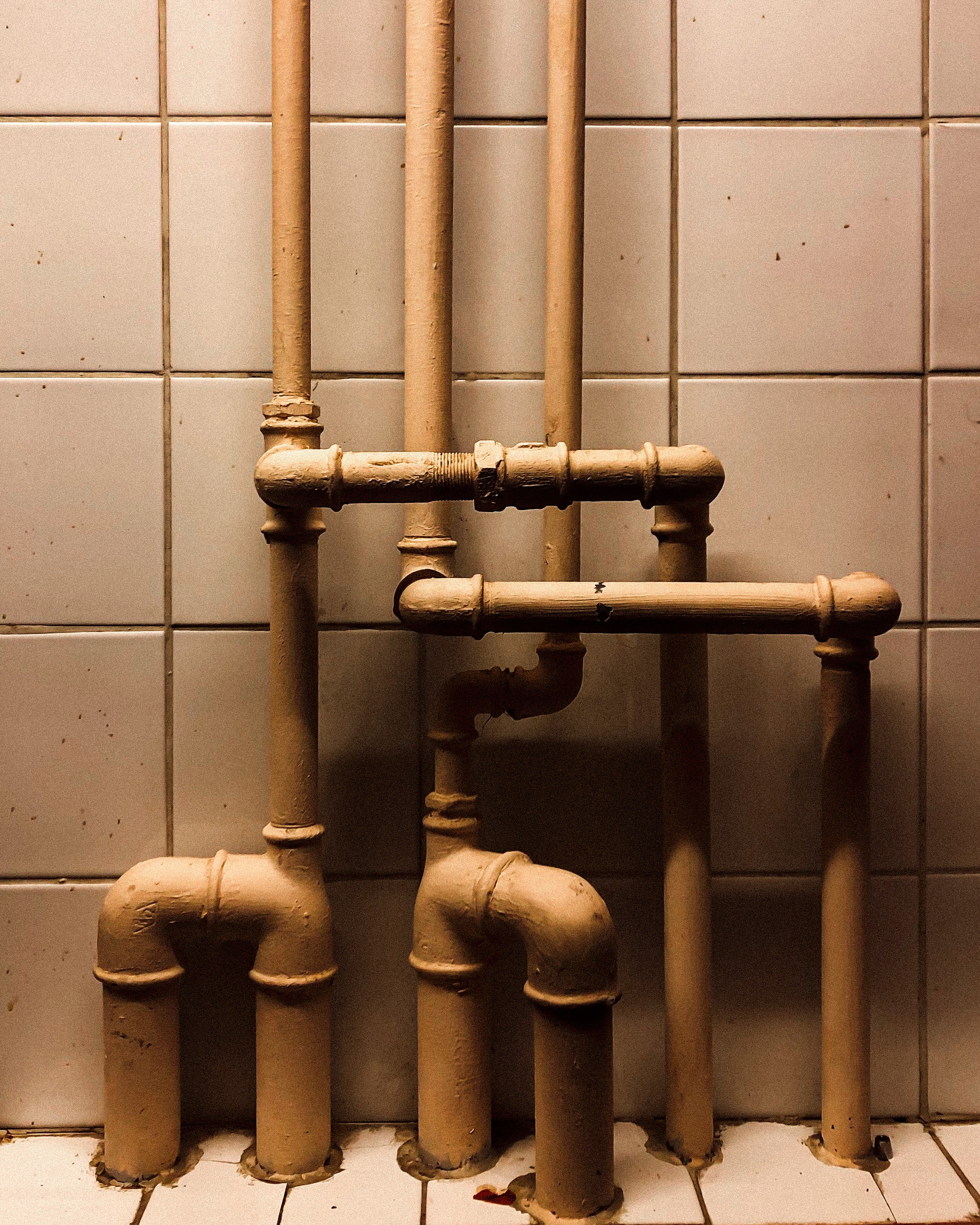
ARTICLE
Information about Lead and Copper
The lead contamination crisis in the drinking water supply in Flint, Michigan became national news in late January 2016. This crisis has revealed to the U.S. Environmental Protection Agency and the CNMI Bureau of Environmental and Coastal Quality the need to make the public more aware of the efforts made towards regulating lead and copper in the CNMI's drinking water as well as making sure that the drinking water is free from all harmful contaminants.
To further that need, the Mariana Islands Water Operator Association, in conjunction with BECQ, has created several web pages that describe the sampling protocols for lead and copper, guidance for selection of sampling sites, materials inventories for public water systems in the CNMI, and lead and copper sampling results all public water systems in the CNMI that are required to sample for lead and copper.
To go to the Lead and Copper Information pages click here.
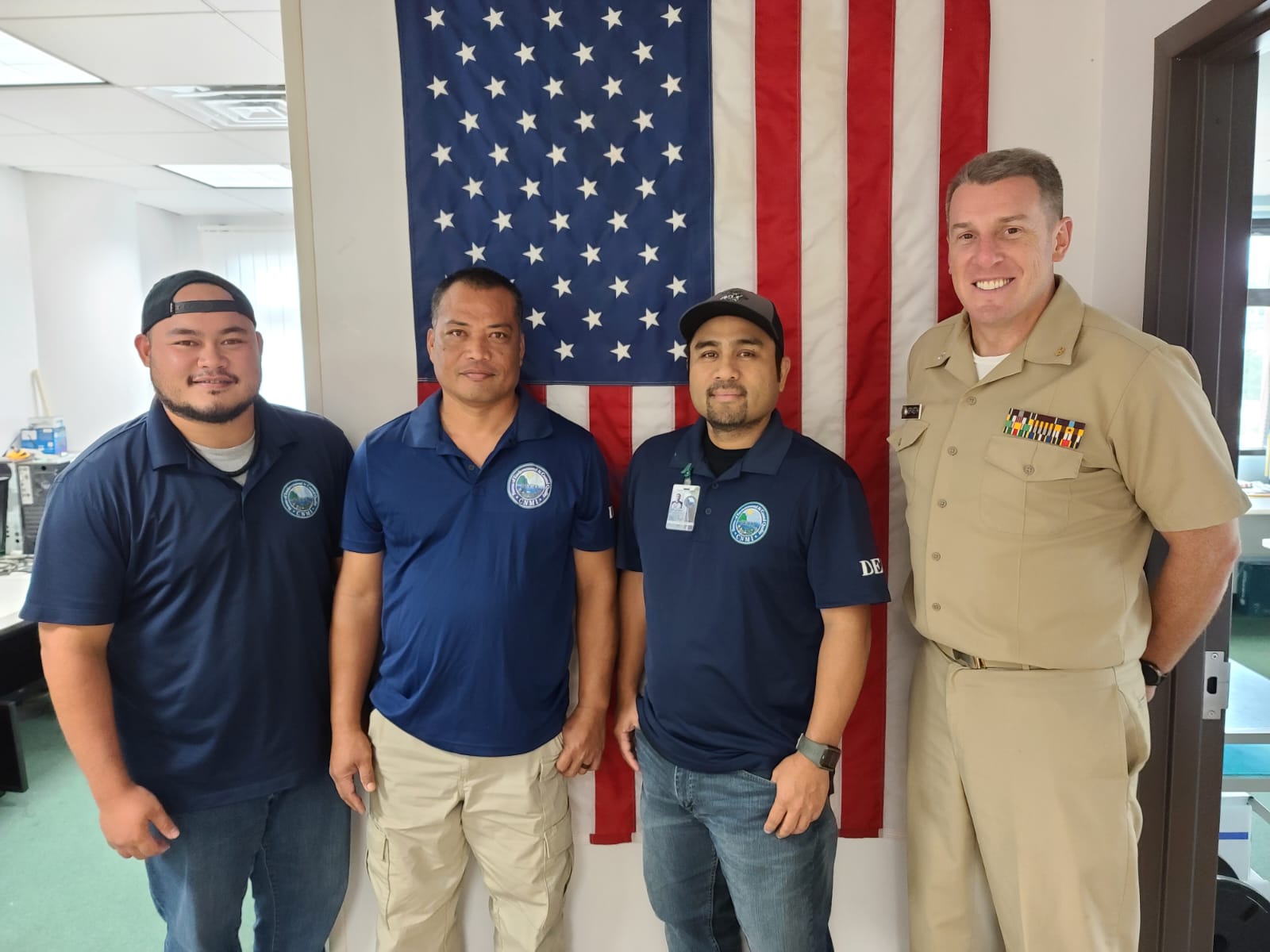
Staff
The employees of the Safe Drinking and Groundwater Management branch are here to serve you:
- CDR Travis Spaeth, PE. USPHS, Manager
- Contact Number: 670-664-8509
- Email:
- Glenn Arriola, Environmental Specialist
- Contact Number: 670-664-8518
- Email:
- Loy Atalig, Emerging Containment Coordinator
- Contact Number: 670-664-8518
- Email:
- Austin Flores, DIME/SDWIS Administrator
- Contact Number: 670-664-8518
- Email:
- Amy Cabrera, Environmental Technician
- Contact Number: 670-664-8518
- Email: